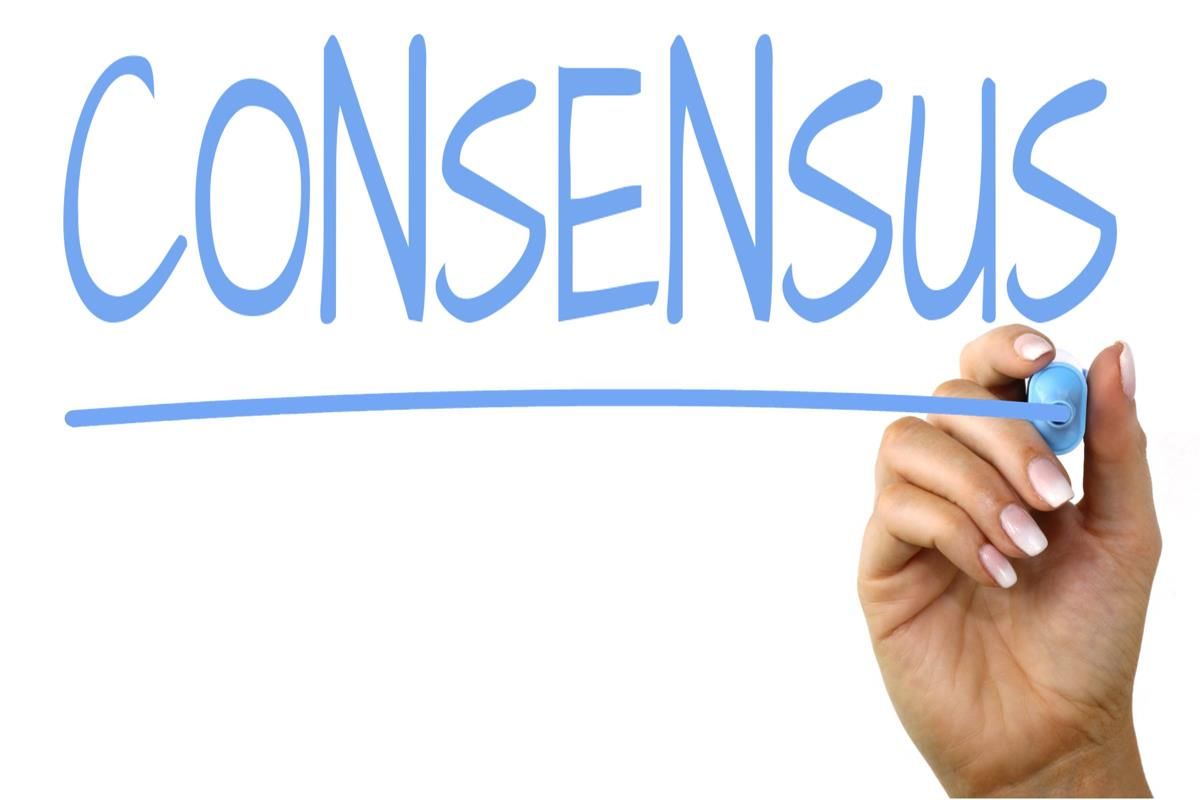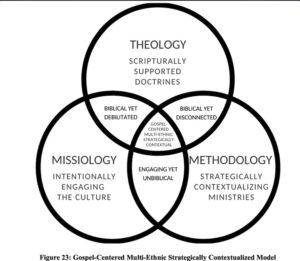In a recent episode of the Replant Bootcamp podcast, Bob and Jimbo walked us through what it looks like to weigh big decisions. In that episode (and accompanying blog linked here), we discussed seven steps we can take when making difficult decisions as a replant pastor or leader. These decisions can be made unilaterally, allowing the pastor to think through his choice and move forward. But many decisions require more than just the pastor thinking through them– they require a consensus of thought from many different voices and viewpoints.
Consensus is defined as, “a general agreement, [or] to arrive at an agreement about a matter, thing, or initiative.” And this process of collaborative consensus has real benefit when it comes to unity and support within the church, but it is not without challenges. Thankfully, Bob and Jimbo are here to guide us. Let’s dive into episode 216 and look at the challenges and correctives in consensus decision-making.
Obstacle One: 100% Agreement Might Be 100% Impossible

As I write this, Thanksgiving is two weeks away. That means it’s time to send the annual “What does everyone want for Thanksgiving Dinner” family group text. You might think Turkey Day has a standard menu of Turkey, Dressing (or Stuffing, depending on your regional preference), cranberry sauce, etc. And in most families, you’d be right. But not in mine.
I have one kid who hates turkey. He always requests a small ham. I have another family member who doesn’t care for mashed potatoes but will eat sweet potatoes. I have one child who despises green bean casserole and two who can finish the entire casserole dish themselves. I have one person who prefers pumpkin pie and one who prefers pecan. One who wants corn casserole and one who wants macaroni and cheese. Only one person will eat cranberry sauce.
I am only feeding between 5 and 10 people any given Thanksgiving, but getting all 5 to 10 people to agree on a menu for that day is nearly impossible because everyone has their own preferences. If I wait for everyone to agree on a menu I run the risk of Christmas being here before we can eat.
Church decisions are often like this. One faction wants one thing, while another would prefer something else. If we wait for everyone to agree, we may never reach the place of decision.
Our challenge is often in seeking 100% agreement in the outcome. Instead, we need to look for 100% support for the outcome.
Bob Bumgarner, the Lead Missional Strategist for First Coast Churches in Jacksonville, Florida, sees it this way: Maybe we can’t get 100% of the people to agree on 100% of the decision, but can we have 100% of the people agree to 80% of the decision? In other words, can we all agree on the fundamentals so we can support the decision and stand by it without disunity and disharmony? Can we give up our preference for one stroke of the painting to allow for a decision that provides the best portrait?
Consensus decision-making requires us to acknowledge that we may not achieve a unanimous decision, but we can agree on the essentials enough to move forward.
The First Opportunity Found in Consensus
When we go into a decision knowing 100% agreement might be 100% impossible, we might run the risk of feeling somewhat discouraged. But there is an opportunity here in this obstacle. While we can’t guarantee a unanimous decision, we can seek to love each person at the table in mutual submission and grace.
Ephesians 5:21 states, “Submit to one another out of reverence for Christ.” I can push my personal preferences aside when I remember that it’s not about me. We must honor each other as we sit around a table and seek wise counsel.
In any collaborative decision-making process, there will be opportunities for discussion and perhaps even debate. In those moments, it is crucial that we remind our people to truly listen to each other. When we actively listen to someone else’s position, we aren’t looking for new ways to convince them toward our side. We are instead serving them and honoring them by seeking to understand them better.
Mutual submission allows each person to not only feel heard and validated, it also acknowledges a very powerful truth: We do not have all the answers. Spoiler alert: We do not know everything! In hearing someone else’s opinion and truly listening for deeper understanding, we are humbly recognizing that we don’t know it all.
We may not be able to agree on everything, but we can all agree that honoring each person at the table is more important than anything.
Obstacle Two: Desperate Times Make for Desperate Decisions
Have you ever been in a meeting that just… wouldn’t… end…? I was once in a staff meeting where 15 different staff members were all trying to decide on a solution to a very frustrating situation. Every person had a valid opinion and every person felt that they were correct. No one seemed to know how to fix the problem. After 3 hours of back-and-forth discussion, do you know what was finally decided? Absolutely nothing. The decision was tabled until the next month’s staff meeting.
There was just one problem… That situation still needed a solution. In desperation and frustration, management made a unilateral decision that angered everyone and threatened to induce a mass walkout.
Their desperation to make a decision, ANY decision, led them to make one that really didn’t solve the problem and instead led to newer, far more serious, problems. Churches can experience that desperation, too. In our rashness for ANY decision to be made, we can jump into the wrong one. We can allow the conversation of our preferences, our desires, and our thoughts to become the standard for decision-making.
I know what you’re thinking… But Erin, you JUST SAID we needed to humbly listen to everyone! You’re right. But there’s one more person we must listen to over everyone in the room: The Holy Spirit.
If the only standard we use for decision-making is our own flawed human logic, we are bound to fall into desperate decisions that aren’t Kingdom-minded.
The Second Opportunity Found in Consensus
The best decisions we can make are those that honor God: His Word, His Work, and His Way. Our logic, preferences, and opinions all take a back seat to the wisdom that is only found in the Holy Spirit.
As leaders in the room where it happens, we have a unique opportunity to guide our people toward listening for the Holy Spirit’s guidance. When we remember to rely on God’s timing and God’s provision, we are less likely to jump into desperate decision-making that leaves Him behind.
When we encourage our members to pray for upcoming decisions, we are reminding them to look for God’s leadership and not just ours. When we guide our members to search the Scriptures for verses specific to the topic, we are reinforcing our mutual belief that God’s Word is alive and active, even for our “modern-day” decisions. When we shepherd our members to wait for God’s timing, we are motivating them to remember that He is faithful even in the waiting.
We are strengthened as a community when we remind ourselves that the Holy Spirit’s voice should be the strongest in the room.
Obstacle Three: “I Never Liked It From the Start”

You know the expression, “Hindsight is 20/20?” I know a woman whose hindsight is not only crystal clear, but she will also be happy to remind you that her foresight was, too. “I was never on board,” she boasts. “I knew this was a bad idea from the beginning.” The problem is, she never says anything in the beginning! It’s only after a decision has been made and then found to be less than ideal that she finds this voice.
You might imagine that consensus decision-making would discourage this because there is ample opportunity to speak up and collaborate on decisions. But instead, sometimes the opposite is true. In a consensus where everyone is part of the process, there is a challenge for everyone to not only agree with the decision but support it, as well.
As we said in the first obstacle, we may not all agree on the entirety, but we hope to agree enough on the fundamentals to come to a decision. But even if we don’t agree with it all, we MUST support it all. It is imperative that every person involved in a decision-making process leaves the room ready to champion the final option.
We must remember that those of us making decisions will occasionally make a decision that doesn’t turn out exactly how we imagined. In that moment, we must be able to acknowledge the reasons why and move forward without finger-pointing and murmuring against each other. The full support of each person in the consensus is necessary for unity and accountability.
The Third Opportunity In Consensus
In Galatians 5, Paul reminds the Galatians to live ”by the Spirit.” He tells them that the works of the flesh are evident. The first few refer to sexual impurities, but then he mentions, “enmity, strife, jealousy, fits of anger, rivalries, dissensions, divisions, [and] envy.” Paul’s reminder is fitting for us, as well, as we think through collaborative decisions. When we walk in the flesh, we are prone to backbiting and dissension. We allow rivalries to build up and bitterness toward our fellow members to grow roots in our hearts. We make decisions not out of a spirit of love, but out of pettiness and jealousy.
But when we are led by the Spirit, Paul writes, we bear the fruit of the Spirit, namely, love, joy, peace, patience, kindness, goodness, faithfulness, gentleness, and self-control. Imagine being in a room where decisions were made in that kind of generosity of Spirit. Imagine collaborating with fellow Christians who all listened to each other with those fruits evident in their interactions.
Now imagine that the decision didn’t work out for some reason, and imagine seeing those same people respond to each other with grace and mercy, the fruit of the Spirit on display as they support each other and encourage each other.
Consensus decision-making can be challenging, but when we meet those challenges with biblical community, we honor God and testify to His Spirit in us. We see our members grow in grace, love, and unity with each other, and that overflow informs our decision-making process. We make better decisions with better support and we see a transformation as we do so.


 Another way to “Listen to the Field” is by being active in your community. As a Replant or Revitalization pastor, you will do yourself a favor by being as active in the community as possible. Some of the most helpful conversations I have been in have been at the coffee shop, a football game, or a city council meeting.
Another way to “Listen to the Field” is by being active in your community. As a Replant or Revitalization pastor, you will do yourself a favor by being as active in the community as possible. Some of the most helpful conversations I have been in have been at the coffee shop, a football game, or a city council meeting. 

